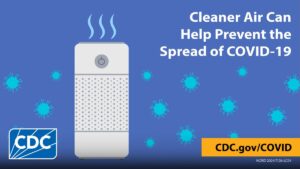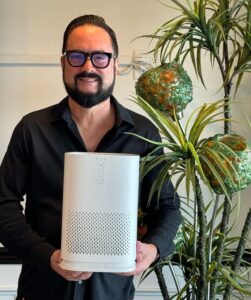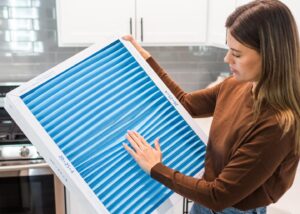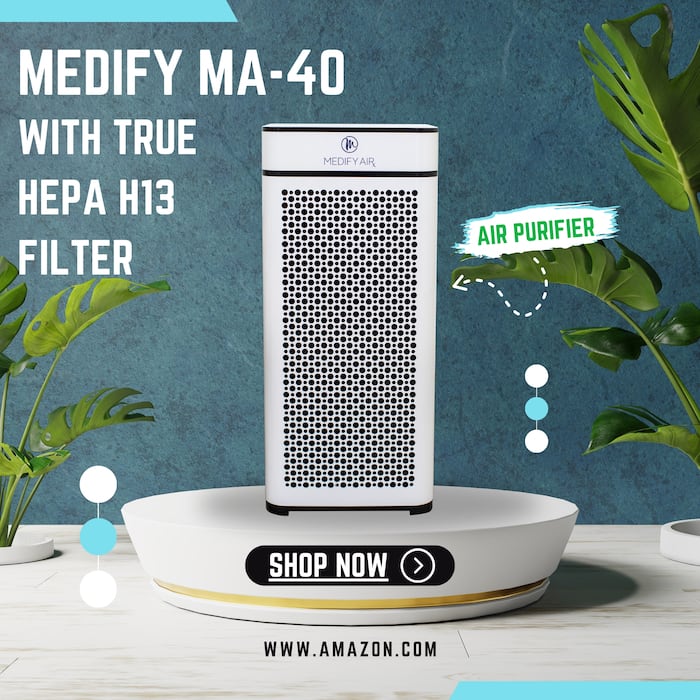Enhancing Senior Health - The Critical Role of Air Purification in Nursing Homes
Get a Free Indoor Air Quality Consultation Today
Ensure a Healthier Environment for Your Senior Residents and Staff!
We are featured in:
Understanding the Unique Indoor Air Quality Challenges in Senior Living Facilities
Senior living facilities face distinct indoor air quality (IAQ) challenges due to the vulnerability of their residents. The elderly are particularly sensitive to poor air quality, which can exacerbate pre-existing health conditions and lead to respiratory issues. Key challenges include:
- High occupant density: Increases the risk of airborne infections.
- Use of medical equipment and cleaning chemicals: Contributes to elevated levels of airborne contaminants.
- Inadequate ventilation: Older buildings often suffer from poor ventilation, causing pollutants to accumulate.
To address these challenges, facilities should focus on:
- Improving ventilation by ensuring proper airflow and upgrading systems as needed.
- Upgrading air filtration systems to capture a wider range of pollutants.
- Regularly monitoring air quality to identify and mitigate potential issues.
The Health Impact of Poor Indoor Air Quality on Elderly Residents
Poor indoor air quality (IAQ) poses significant health risks to elderly residents in nursing homes. Due to their weakened immune systems and pre-existing health conditions, seniors are more susceptible to the effects of airborne pollutants. The health impacts include:
- Respiratory issues: Exposure to particulate matter, mold, and volatile organic compounds (VOCs) can worsen conditions like COPD and asthma.
- Increased hospital visits: Poor IAQ can exacerbate chronic conditions, leading to more frequent medical interventions.
- Cognitive decline: Long-term exposure to indoor pollutants may accelerate cognitive decline and increase the risk of dementia.
Maintaining clean air in senior living facilities is crucial to safeguarding both the physical and mental well-being of elderly residents.
Get a Free Indoor Air Quality Consultation Today
Ensure a Healthier Environment for Your School or Office!
Related Posts:

Cleaner Air: A Critical Tool for Enhancing School Safety During the COVID-19 Surge and Protecting Vulnerable Children
Cleaner Air: A Critical Tool for Enhancing School Safety During the COVID-19 Surge and Protecting Vulnerable Children Cleaner Air in

Steve Fontaine: America’s Indoor Air Quality Expert
Steve Fontaine: America’s Indoor Air Quality Expert Steve Fontaine – “America’s Indoor Air Quality Expert” ™ Steve Fontaine, “America’s Indoor

Importance of Consulting an Expert for a HEPA 13 or 14 Filtered Air Purifier
Importance of Consulting an Expert for a HEPA 13 or 14 Filtered Air Purifier Indoor air quality is a significant
Advanced Air Purification Technologies: Protecting Vulnerable Populations
In senior living facilities, advanced air purification technologies play a critical role in safeguarding the health of vulnerable elderly residents. Key technologies include:
- HEPA filters: Capture fine particles like dust, pollen, and mold spores, which can aggravate respiratory conditions.
- UV-C light: Inactivates viruses and bacteria, reducing the spread of infections.
- Activated carbon filters: Eliminate volatile organic compounds (VOCs) and unpleasant odors.
By integrating these advanced air purification systems, senior living facilities can significantly reduce harmful pollutants, creating a safer and healthier environment.
Best Practices for Maintaining Optimal Indoor Air Quality in Nursing Homes
Maintaining optimal indoor air quality (IAQ) in nursing homes is essential for the well-being of elderly residents. Best practices include:
- Regular monitoring of air quality to quickly identify and address issues.
- Ensuring proper ventilation by keeping vents unobstructed and using energy recovery ventilators (ERVs).
- Using high-efficiency air filtration systems to reduce airborne contaminants.
- Minimizing the use of harsh cleaning chemicals by opting for low-VOC products and green cleaning practices.
- Training staff on IAQ awareness to ensure prompt responses to potential air quality concerns.
Cost-Effective Solutions for Long-Term Indoor Air Quality Improvement in Senior Homes
Improving indoor air quality (IAQ) in senior homes can be both effective and budget-friendly. Consider these cost-effective strategies:
- Upgrade to HEPA filters in existing HVAC systems to capture a significant amount of airborne pollutants.
- Regular maintenance of HVAC systems by sealing duct leaks and ensuring proper ventilation.
- Use portable air purifiers in high-traffic or problem areas for targeted air purification.
- Adopt green cleaning practices by using low-VOC products to reduce indoor pollutants.
- Implement regular air quality monitoring to catch problems early and avoid costly issues.
By combining these strategies, senior homes can achieve long-term IAQ improvements while staying within budget.
Got questions? Contact us or get free consultation.
Adherence to Guidelines from:
- World Health Organization
- CDC
- EPA
Expert in the field of IAQ
Our seasoned advisors provide trusted solutions to secure your family's or employees' health.
Each case is handled alone
Personalized approach to address your specific air quality needs effectively and efficiently.
Chat with an expert any time
Access our expert advice whenever you need it, ensuring continuous support for your air quality concerns.
Helped install 1.2 Million air purifiers
Proven track record of enhancing indoor environments with our comprehensive air purification solutions.












